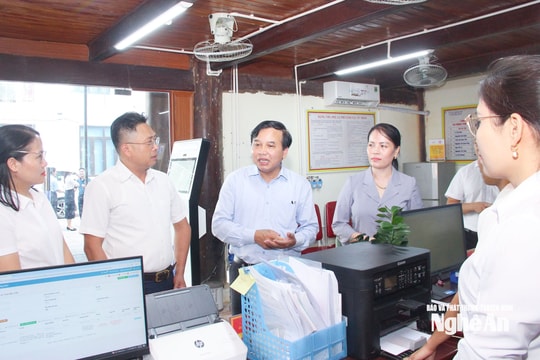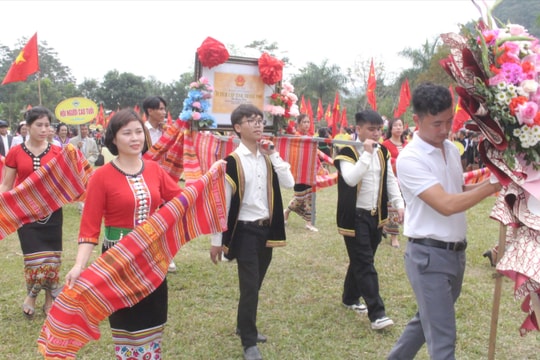Muong Ham: Inspiring identity, creating a digital future in the highlands
As a land rich in cultural traditions of the Thai people in Western Nghe An, Muong Ham not only carries within itself the legend of its founding, unique festivals and unique indigenous cultural ecosystem, but is also gradually developing strongly. From resource potential to the aspiration for comprehensive digital transformation, Muong Ham is opening a new journey: Modern, sustainable and imbued with identity.
A land rich in identity in the vast Nghe An region
Located in the West of Nghe An province, Muong Ham commune was established on the basis of merging the entire administrative boundaries of Chau Thai and Chau Cuong communes. With a total area of 160.35 km², Muong Ham is a large area, rich in resources with more than 11,000 hectares of forest, nearly 1,200 hectares of agricultural land and hundreds of hectares of mineral potential. The whole commune currently has 22 hamlets and villages, nearly 14,214 people, of which Thai people account for nearly 84%, creating a residential community with a strong highland cultural identity.
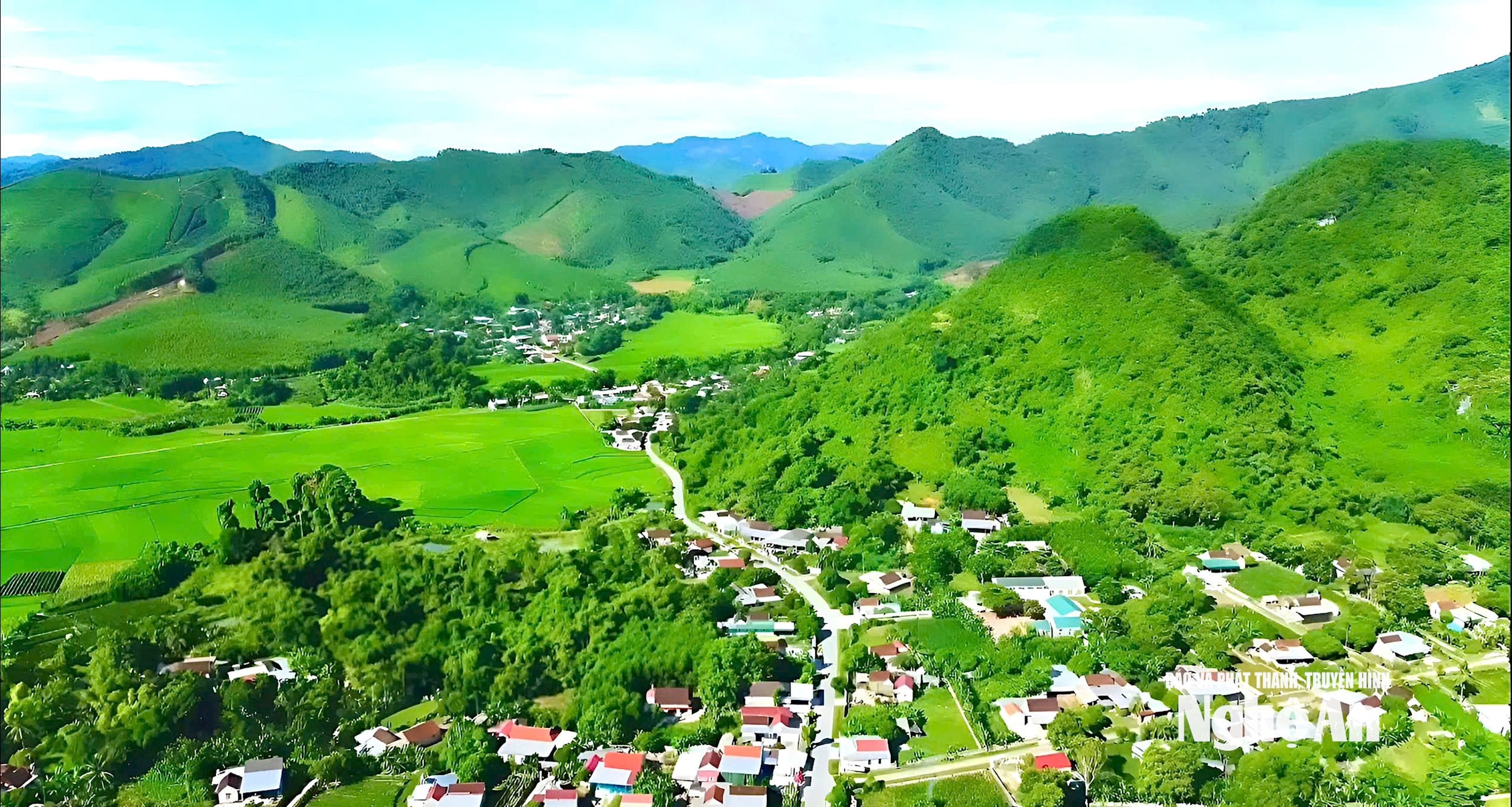
Muong Ham bears the historical and legendary imprint of the Thai people in Western Nghe An. According to folklore, this land is associated with Tao Noi - the person who is said to have opened the Muong and established the first village here. Under the Nguyen Dynasty, Muong Ham was the administrative center of the area with the name Thuan Ham Tong. To this day, the Muong Ham festival - held in the beginning of the first lunar month - is still respectfully maintained by the people, as an occasion to remember the ancestors, the patriarchs who founded the Muong and unite the community.
The typical residential space of the Thai people with stilt houses, gongs, drums, temples, and handicrafts such as brocade weaving, weaving, silver carving, has created a unique cultural ecosystem. Legends such as the tragic love story of Nang Ni - Khun Tinh, Muong worship rituals, love songs, xoe dances... are still alive in the spiritual life of the community. The Thai language and ancient Thai script are still preserved in large villages, creating a special cultural depth.
During the development process, Muong Ham has constantly innovated. The administrative merger has opened up new development space, helping the commune improve its management capacity, invest in synchronous infrastructure, access modern public services and develop a green economy associated with cultural preservation. In 2024, Muong Ham Temple was recognized as a provincial historical relic - a milestone affirming the traditional cultural values of the land that is growing strongly in the heart of the great forest.
Nmany outstanding results in various fields
During the 2020 - 2025 term, Muong Ham commune has strived to overcome difficulties, promote internal strength, and take advantage of supporting resources to achieve many positive results in socio-economic development. The average growth rate of product value reached 6.29%/year. The economic structure has shifted reasonably, in which agriculture, forestry and fishery accounted for 44.61%; industry - construction 17.23%; services 38.16%.
The agriculture, forestry and fishery sector continues to play a leading role, with an average growth rate of product value of 6.25%. The total product value of the whole industry is estimated at over 153 billion VND. The crop production sector has a positive shift towards commodity production, many production targets have been achieved and exceeded. Livestock has developed stably, focusing on disease prevention and improving the quality of livestock. Forest protection and development work has been well implemented, contributing to increasing coverage and creating sustainable livelihoods.
.jpg)
The industry and construction sector achieved an average growth rate of 5.06% per year, with an estimated total product value of over VND 168 billion. The number of production and business establishments increased, creating jobs on the spot and increasing income for people. Infrastructure was heavily invested with 112 basic construction projects, with a total investment of over VND 111 billion. The transportation, electricity and telecommunications systems were widespread, creating conditions for comprehensive development.
The service sector has developed steadily with a growth rate of 7.01%. The total value of services is estimated at nearly 119 billion VND. Types of transportation, trade, consumer services, and agricultural supplies meet people's needs well. The average income per capita in 2025 is estimated at 44 million VND.
The average state budget revenue reached 891.6 million VND/year; in 2025 it is estimated to reach 1,250 million VND. Budget expenditures were implemented in accordance with regulations, ensuring the operation of the political system and social security. The new rural construction program achieved clear results with 6 hamlets meeting standards. The total mobilized resources were more than 107 billion VND, including large contributions from the people.
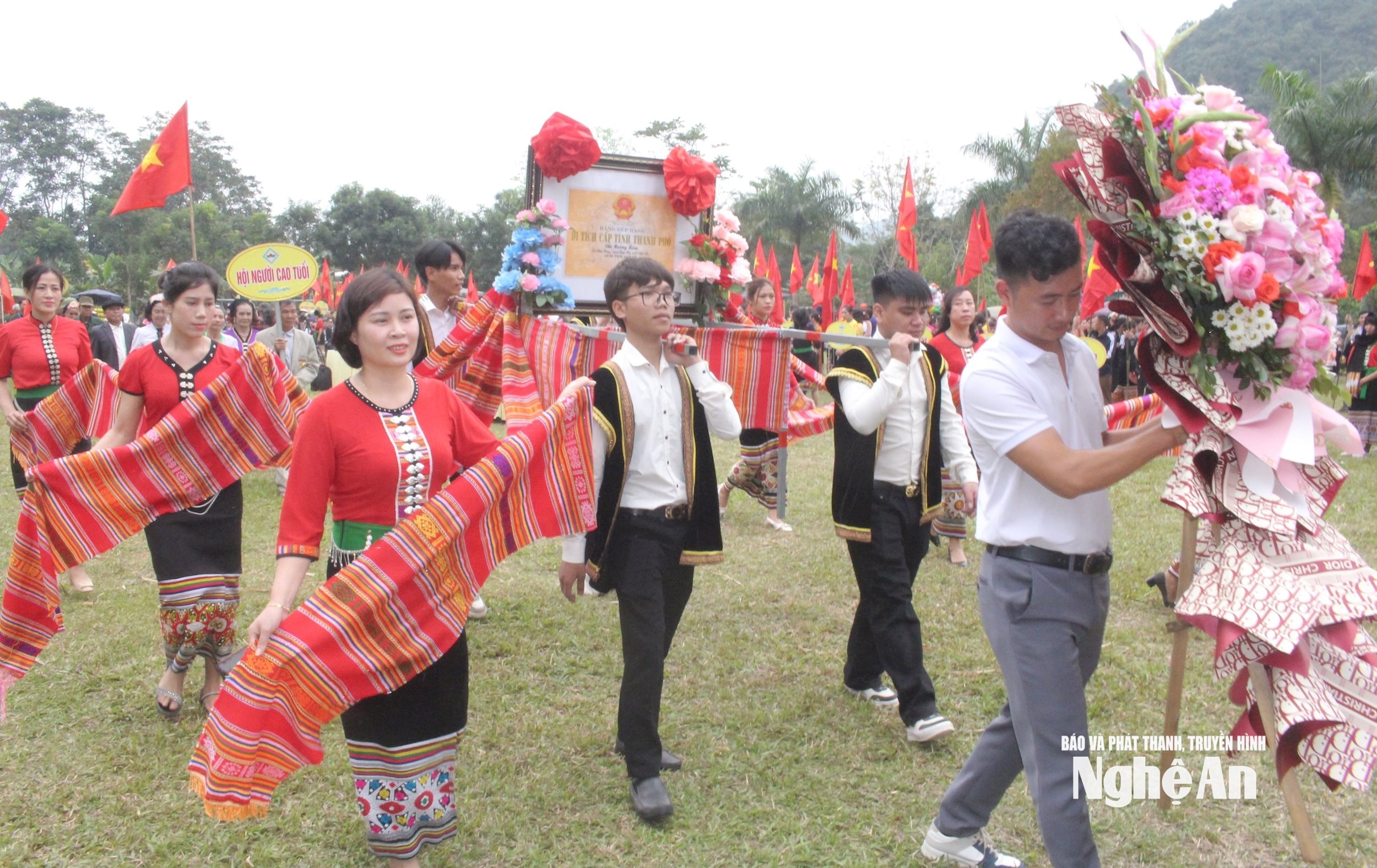
The fields of culture - society, education - health, administrative reform, digital transformation, national defense - security all have positive changes. The rate of hardened commune roads reached over 78%. Vocational training, job creation, and sustainable poverty reduction were effectively implemented, the poverty rate decreased by an average of 1-2%/year. National defense - security was maintained, creating a solid foundation for comprehensive sustainable development.
Unlocking resources, creating a digital future
Entering the 2025-2030 term, Muong Ham commune has determined the general goal of building a clean and strong Party organization and political system; promoting the strength of national solidarity, effectively exploiting all potentials and advantages for comprehensive and sustainable socio-economic development. In particular, the commune aspires to develop into a locality with a thriving rural digital economy, synchronous infrastructure, preserved and promoted indigenous culture, and community tourism associated with e-commerce spreading to every household.
Muong Ham aims to build a modern digital government, with people as the center of service. Each citizen can access public services right at home via smartphone; the government operates effectively and transparently through a digital platform, gradually becoming a basic, modern digital administrative commune.
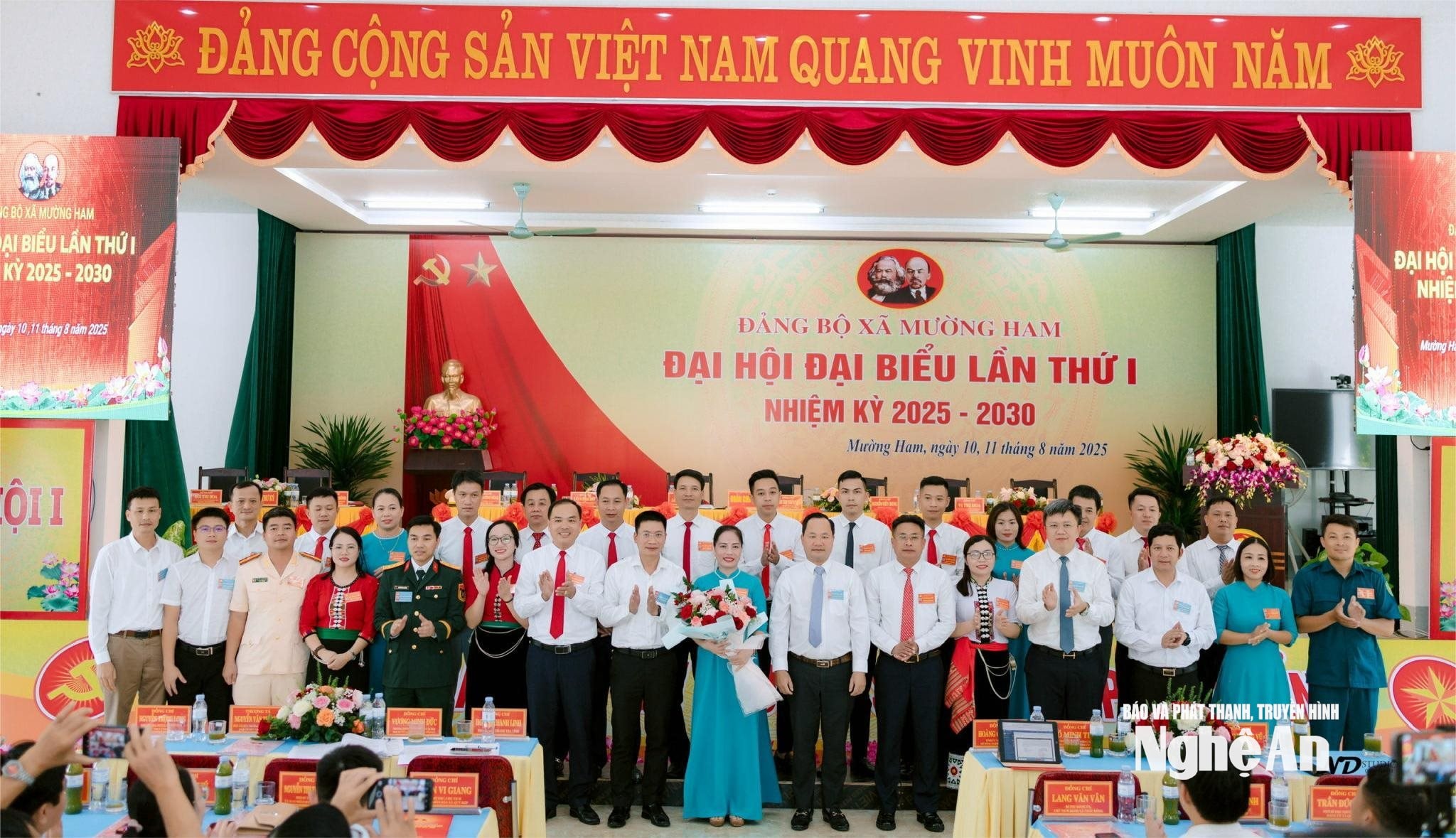
To realize the above objectives, the Party Committee of the commune has set out 24 development targets in the fields of economy, culture - society, environment, national defense - security and building the political system. At the same time, it has established 7 key task groups, 3 strategic breakthroughs and 5 major solution groups to create new development momentum, expand growth space and improve the quality of life for the people.
Among the three identified breakthroughs, the administrative reform associated with digital transformation stands out. Muong Ham focuses on simplifying administrative procedures, building a "modern electronic one-stop shop" model connected to the provincial operating system, bringing public services to each hamlet through community technology teams. Along with that, the commune focuses on training staff in the direction of "streamlining, professionalism, digitalization", ensuring the administrative apparatus meets the operating requirements in the new era.
The second breakthrough is to mobilize all resources to build synchronous infrastructure, associated with restructuring the economy towards green and sustainable growth. The commune will develop concentrated raw material areas such as sugarcane, acacia, medicinal herbs associated with smart irrigation technology, climate sensors, growing area codes and traceability. At the same time, establish a digital market for Muong Ham agricultural products, bring local specialties to e-commerce platforms, expand the consumption market, and increase income for people.
Muong Ham also focuses on developing small-scale industries and traditional craft villages such as brocade weaving, carpentry, and incense, combining digital branding, QR codes, and product standardization. Applying digital data in production and consumption, moving towards forming digital cooperatives and e-farmers.
The third breakthrough is training digital human resources - a key factor for sustainable digital transformation. The commune will implement the "Rural Digital Citizen" program, aiming for each household to have at least one person who knows how to use smart devices and conduct electronic transactions. In parallel, the commune will coordinate with vocational schools and training centers to open classes on digital skills, e-commerce, and high-tech agricultural operations in the area. By 2030, it is expected that 100% of commune officials will be proficient in information technology, and 1-2 hamlets will have digital agricultural models, contributing to improving local competitiveness in the digital economy.
.jpg)
With a strategic vision, clear direction and specific steps, Muong Ham is transforming strongly, aiming to become a model highland commune - modern in management, dynamic in development and proactive in integration.
The Executive Committee of the Muong Ham Commune Party Committee, term I, 2025 - 2030, consists of 20 comrades and the Standing Committee of the Commune Party Committee consists of 7 comrades. Comrade Tran Thi Thuy Nga - Secretary, Chairman of the Commune People's Council; Lo Van Ninh - Standing Deputy Secretary of the Commune Party Committee; Nguyen Viet Chung - Deputy Secretary of the Party Committee, Chairman of the Commune People's Committee.

